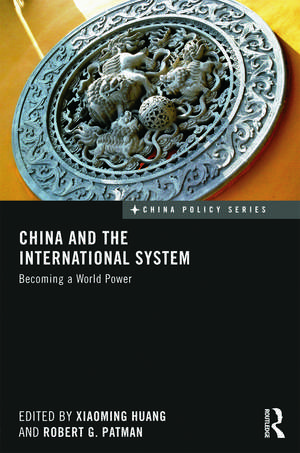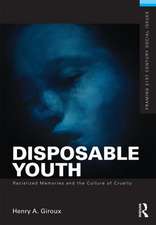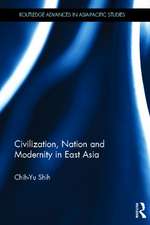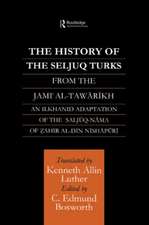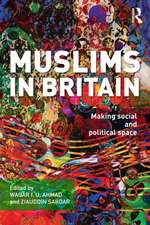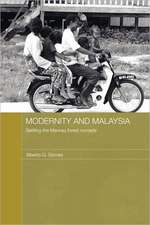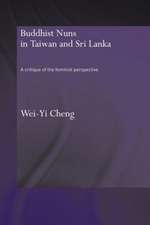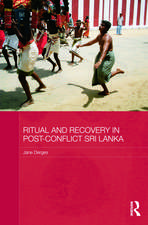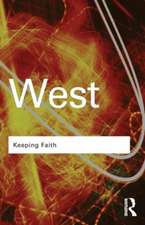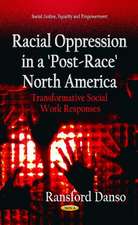China and the International System: Becoming a World Power: China Policy Series
Editat de Xiaoming Huang, Robert Patmanen Limba Engleză Hardback – 14 mar 2013
By demonstrating a more dynamic and mutually constitutive relationship between China and the international system, the book explores the extent to which both transform themselves in the process, and provides a fuller and more effective assessment of the evolving nature of the relationship. In doing so, it addresses key issues in the current literature on the relationship of China and the international system, and helps close the gap in our knowledge of the conditions and consequences of change and stability in the international system as a result of the change in distributions of power, capability and influence among nation-states.
| Toate formatele și edițiile | Preț | Express |
|---|---|---|
| Paperback (1) | 385.54 lei 6-8 săpt. | |
| Taylor & Francis – 23 iul 2015 | 385.54 lei 6-8 săpt. | |
| Hardback (1) | 1057.57 lei 6-8 săpt. | |
| Taylor & Francis – 14 mar 2013 | 1057.57 lei 6-8 săpt. |
Din seria China Policy Series
-
 Preț: 282.83 lei
Preț: 282.83 lei -
 Preț: 311.91 lei
Preț: 311.91 lei -
 Preț: 409.69 lei
Preț: 409.69 lei - 18%
 Preț: 1061.84 lei
Preț: 1061.84 lei - 18%
 Preț: 1002.63 lei
Preț: 1002.63 lei - 16%
 Preț: 131.72 lei
Preț: 131.72 lei - 28%
 Preț: 850.19 lei
Preț: 850.19 lei -
 Preț: 410.58 lei
Preț: 410.58 lei -
 Preț: 471.33 lei
Preț: 471.33 lei - 18%
 Preț: 1170.74 lei
Preț: 1170.74 lei -
 Preț: 387.49 lei
Preț: 387.49 lei -
 Preț: 487.02 lei
Preț: 487.02 lei - 17%
 Preț: 127.80 lei
Preț: 127.80 lei - 18%
 Preț: 1056.28 lei
Preț: 1056.28 lei - 14%
 Preț: 297.99 lei
Preț: 297.99 lei - 18%
 Preț: 1061.57 lei
Preț: 1061.57 lei - 18%
 Preț: 1171.54 lei
Preț: 1171.54 lei -
 Preț: 468.36 lei
Preț: 468.36 lei - 18%
 Preț: 726.15 lei
Preț: 726.15 lei - 18%
 Preț: 1050.78 lei
Preț: 1050.78 lei - 18%
 Preț: 1223.30 lei
Preț: 1223.30 lei - 18%
 Preț: 1057.13 lei
Preț: 1057.13 lei - 28%
 Preț: 798.43 lei
Preț: 798.43 lei - 28%
 Preț: 849.84 lei
Preț: 849.84 lei -
 Preț: 195.62 lei
Preț: 195.62 lei -
 Preț: 419.16 lei
Preț: 419.16 lei - 18%
 Preț: 1058.69 lei
Preț: 1058.69 lei - 18%
 Preț: 1059.48 lei
Preț: 1059.48 lei - 25%
 Preț: 822.91 lei
Preț: 822.91 lei -
 Preț: 374.58 lei
Preț: 374.58 lei - 28%
 Preț: 821.06 lei
Preț: 821.06 lei - 18%
 Preț: 1220.42 lei
Preț: 1220.42 lei -
 Preț: 396.33 lei
Preț: 396.33 lei - 18%
 Preț: 1224.42 lei
Preț: 1224.42 lei - 18%
 Preț: 945.67 lei
Preț: 945.67 lei - 28%
 Preț: 819.48 lei
Preț: 819.48 lei - 18%
 Preț: 1056.32 lei
Preț: 1056.32 lei - 18%
 Preț: 1054.75 lei
Preț: 1054.75 lei
Preț: 1057.57 lei
Preț vechi: 1289.72 lei
-18% Nou
Puncte Express: 1586
Preț estimativ în valută:
202.36€ • 211.30$ • 167.11£
202.36€ • 211.30$ • 167.11£
Carte tipărită la comandă
Livrare economică 15-29 aprilie
Preluare comenzi: 021 569.72.76
Specificații
ISBN-13: 9780415639668
ISBN-10: 0415639662
Pagini: 256
Ilustrații: 26 b/w images, 1 table and 26 line drawings
Dimensiuni: 156 x 234 x 20 mm
Greutate: 0.54 kg
Ediția:New.
Editura: Taylor & Francis
Colecția Routledge
Seria China Policy Series
Locul publicării:Oxford, United Kingdom
ISBN-10: 0415639662
Pagini: 256
Ilustrații: 26 b/w images, 1 table and 26 line drawings
Dimensiuni: 156 x 234 x 20 mm
Greutate: 0.54 kg
Ediția:New.
Editura: Taylor & Francis
Colecția Routledge
Seria China Policy Series
Locul publicării:Oxford, United Kingdom
Public țintă
PostgraduateCuprins
1. Introduction: China and the International System - Structure, Society and Context Part 1: Contending Indentities and Evolving Interests: China in Search of Itself 2. Chinese Thinking about World Order 3. Core Interests and Great Power Responsibilities: The Evolving Pattern of China’s Foreign Policy 4. International Structure and China’s Strategy and Options Part 2: Transforming Wealth and Capacity to Institutional Power, Policy Outcomes and Political Influence 5. Commercial Diplomacy: Preferential Trade Agreements and Soft Power Projection 6. China’s Quest for Greater Influence in Global Economic Governance: Accomplishments and Limitations 7. Turning Material Capabilities to Leadership: China in Southeast Asia 8. China and the Evolving Regional Order in the South Pacific Part 3: International System and Rising Power: Impact, Interaction and Mutual Constitution 9. Measuring the Impact of the Chinese Economy 10. Fear and China’s Rise: Responses from Northeast Asia 11. China and Global Climate Policy Making: Leadership in a State of Flux 12. Global Economy, Development Imperatives and Mutual Interests: China and Africa 13. Conclusion: A Rising China in a Changing International System
Notă biografică
Xiaoming Huang is Professor of International Relations and Director of New Zealand Contemporary China Research Centre at Victoria University of Wellington, New Zealand.
Robert G. Patman is Professor of International Relations and Director of the Master of International Studies program at the University of Otago, New Zealand.
Robert G. Patman is Professor of International Relations and Director of the Master of International Studies program at the University of Otago, New Zealand.
Descriere
This book considers the evolving relationship between China and the international system, and the interaction between a China of profound change in its identity, capability, and influence, and an international system that is itself experiencing a process of far-reaching transformation. It develops an analytical framework that allows us to capture, understand and explain a more dynamic pattern of agent-structure interaction in China’s relationship with the international system.
